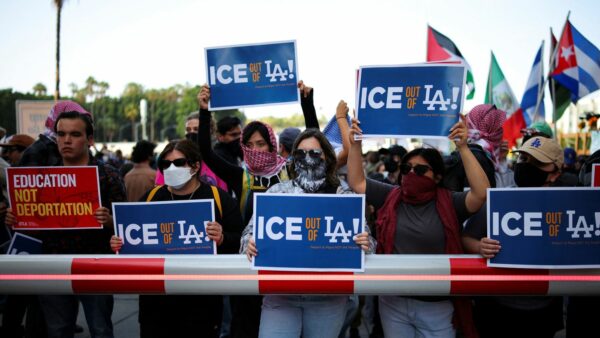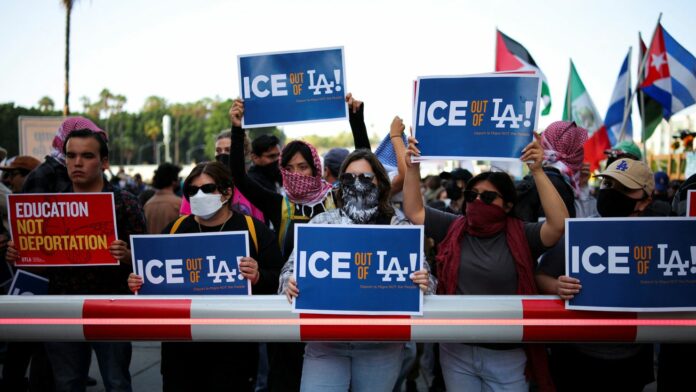Despite signs of calming street unrest following days of intense protests sparked by federal immigration operations, President Donald Trump has escalated his administration’s show of force in Los Angeles, ordering the deployment of approximately 700 active-duty U.S. Marines to the city. This additional military presence, coming on the heels of the federalization of 2,000 California National Guard troops, underscores a defiant stance against California’s objections and signals the administration’s willingness to use overwhelming force in what it views as a critical political battleground.
The order for the Marines to deploy from their base at Twentynine Palms in Southern California marks a significant escalation in the federal response. These highly trained infantry units are set to integrate with the National Guard members already on the ground, whose numbers, including additional troops authorized by Trump, now exceed 4,100 under federal command. Their stated mission, according to U.S. Northern Command, is to “seamlessly integrate” to protect “federal personnel and federal property,” particularly federal immigration agents who have been at the center of the recent unrest.
The deployment comes even as local officials and media reports indicate a noticeable de-escalation in the intensity of the protests that have rocked Los Angeles since Friday. While isolated skirmishes and acts of vandalism occurred over the weekend, Monday’s demonstrations were largely described as calmer, with fewer instances of widespread violence compared to the preceding days.

Image source: CNN
California Governor Gavin Newsom, a vocal critic of Trump’s intervention, immediately slammed the latest order as “illegal,” “immoral,” and a “deranged fantasy.” He announced the state’s intention to file a lawsuit to challenge the federalization of the National Guard, calling it a blatant abuse of power and a violation of state sovereignty. “U.S. Marines serve a valuable purpose for this country — defending democracy. They are not political pawns,” Newsom wrote on X, urging courts and Congress to act.
Los Angeles Mayor Karen Bass echoed the Governor’s concerns, expressing dismay at the unrequested federal intervention. “Our city is trying to move forward,” Bass said, adding that the city feels it is “part of an experiment that we did not ask to be a part of.” Local law enforcement officials, including LAPD Chief Jim McDonnell, have also voiced concerns about the logistical challenges and potential for confusion that arise from the uncoordinated deployment of external military forces.
However, the Trump administration remains unyielding. Homeland Security Secretary Kristi Noem and Defense Secretary Pete Hegseth have repeatedly asserted that federal law enforcement officers were being “targeted and injured” and that local authorities were “too slow to respond” to what they characterized as “riots and looting.” President Trump himself declared on Truth Social that Los Angeles would have been “completely obliterated” if he had not deployed the Guard.
The White House’s consistent narrative frames the situation as a necessary federal response to lawlessness, a message designed to resonate with its political base and underscore its “law and order” platform. The deployment of the Marines, even as unrest appears to subside, reinforces this image of decisive action and an unwavering commitment to federal authority, particularly on immigration issues.
As the heavily armed Marines prepare to take up positions in Los Angeles, the city finds itself at the epicenter of a high-stakes constitutional and political showdown. The escalating federal military presence, despite local pleas for de-escalation, signals that for the Trump administration, this is more than just about quelling protests; it is a visible manifestation of federal power challenging state autonomy, a fight the White House appears eager to wage.
